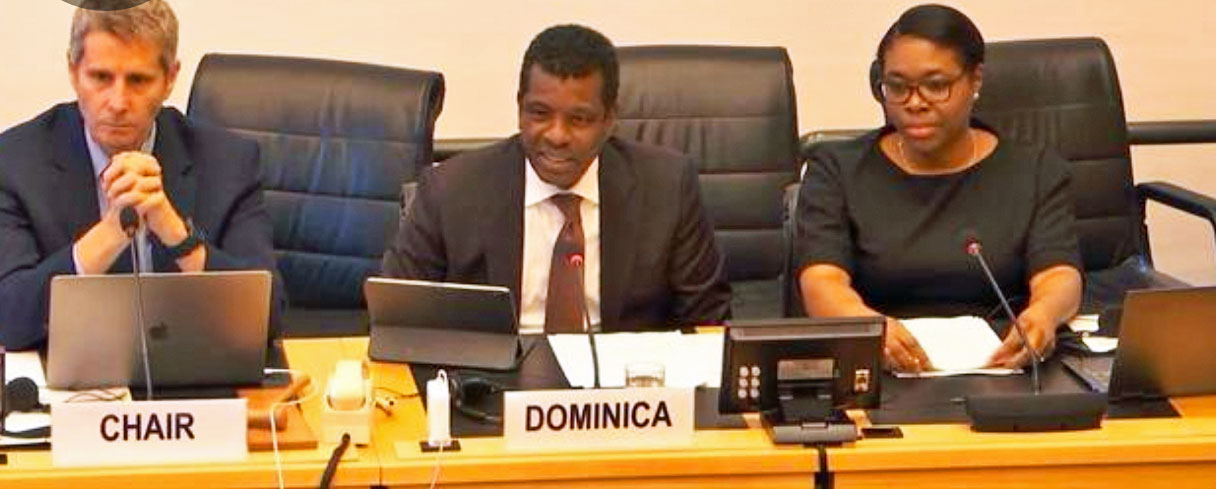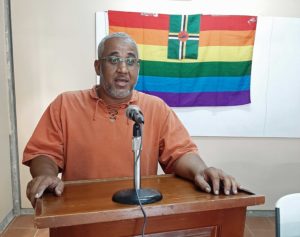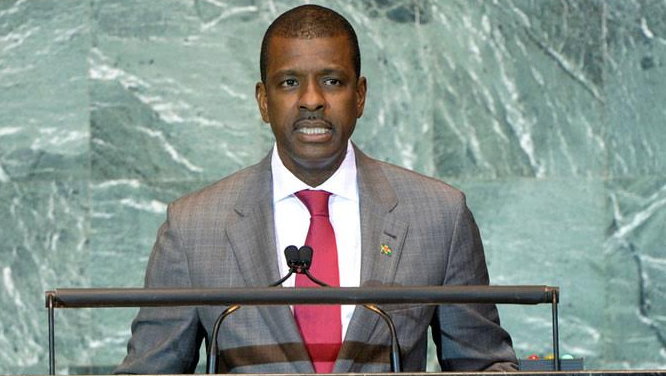Dominica might not appeal if sodomy law is overturned
Colin Stewart is a 45-year journalism veteran living in Southern…
A Dominican ambassador defended the country’s anti-gay law at the United Nations, but gave the impression that the government would not appeal if a court overturned that law.

The LGBTQ rights group Minority Rights Dominica analyzed and responded to the remarks made to the U.N. Human Rights Committee this week by Vince Henderson, Dominica’s ambassador to the United States:
Minority Rights Dominica (MiRiDom) Responds to Dominica’s Human Rights Committee Presentation:
Dominica defends anti-sodomy law at UN

On March 10 and 11, the UN Human Rights Committee conducted its first- ever periodic review of the Commonwealth of Dominica’s compliance with its obligations under the International Covenant of Civil and Political Rights (ICCPR).
The ICCPR is a key international human rights treaty, providing a range of protections for civil and political rights. The ICCPR, together with the Universal Declaration of Human Rights and the International Covenant on Economic Social and Cultural Rights, are considered the International Bill of Human Rights and Dominica is a state party to all these treaties.
The ICCPR obligates countries that have ratified the treaty to protect and preserve basic human rights, such as: the right to life and human dignity; equality before the law; freedom of speech, assembly, and association; religious freedom and privacy; freedom from torture, ill-treatment, and arbitrary detention; gender equality; the right to a fair trial; right family life and family unity; and minority rights.
Many of these rights are also found in Dominica’s constitution and the ICCPR compels governments to take administrative, judicial, and legislative measures in order to protect the rights enshrined in the treaty and to provide an effective remedy.
The Human Rights Committee was established to monitor the implementation of the ICCPR. It is composed of 18 independent experts with recognized competence in the field of human rights. Committee members are elected for a term of four years and must be from countries that have ratified the Covenant.
Dominica is required to provide a report to the Human Rights Committee every four years and, although the state ratified the ICCPR in 1993, no report was ever submitted.

During the more than three-hours-long session on March 10, the Canadian Committee member, Ms. Marcia Kran posed several questions to the Dominican representative, His Excellency Dr. Vince Henderson, Ambassador to the United States and Permanent Representative to the Organisation of American States (OAS). The questions included specific inquires about the human rights situation for lesbian, gay, bisexual and transgender (LGBT) people on the island.
Among other things, Ms. Kran asked if Dominica intended to repeal the archaic anti-sodomy law, which mandates up to 10 years imprisonment plus psychiatric incarceration for all forms of consensual same-sex intimacy, even in private.
Further, the ambassador was asked whether the government had any intention to legislate against the discredited “gay panic defense” that was recently upheld by the country’s courts.
Finally, the state was requested to clarify what steps were being taken to address several reported homophobic and transphobic attacks against LGBT Dominicans.
Ambassador Henderson’s responses were evasive at best, and quite surprisingly he declared that there was no, or very little, discussion on the island about the issue of same-sex intimacy. This is contradicted by multiple media reports published over the years by Dominican news outlets about the anti-sodomy law. These include articles about the constitutional challenge against the statute that was launched in 2019 by a gay citizen.
For security reasons the young man’s identity has been suppressed and the case is being supported by Minority Rights Dominica, along with our international partners such as the Canadian HIV/AIDS Legal Network, the University of Toronto International Human Rights Program, and Lawyers Without Borders.
The Ambassador did acknowledge that the Dominican government was aware of the case and “has to” defend the anti-sodomy law because it is on the books. However, he also advised that the government would respect the decision of the court.
Hopefully this means that the government will not waste taxpayers’ money on multiple appeals if the court strikes down the law, as has happened in our sister CARICOM countries of Belize and Trinidad and Tobago.
The Ambassador also asserted that the government had received no reports of attacks against LGBT Dominicans, but he quickly admitted that this was likely because of the potential for homophobic backslash against any LGBT person who came forward. MiRiDom strongly refutes the Ambassador’s allegations as several LGBT Dominicans have attempted to report homophobic and transphobic attacks, but these have largely been rejected by the police, or very poorly investigated.
Showing a lack of political leadership, Ambassador Henderson then went on to say that, as elected officials, Dominica’s leaders must reflect the will of the people and so there would be no attempt by the legislature to repeal the anti-sodomy law. This is ironic because the legally trained ambassador later confessed that the law is in fact a British imposition, and so it does not reflect the independent intention of Dominica’s parliament.
In a classic case of double-speak, Ambassador Henderson then indicated that, while the government will not repeal the archaic law, which effectively makes LGBT people unapprehended criminals, the state will also not tolerate any anti-LGBT violence or other human rights abuses.
Sadly, the good Ambassador ignored the fact that the very existence of the law contributes to these acts of homophobic and transphobic violence and abuse. This correlation has been repeatedly made by domestic and international human rights bodies, including the Inter-American Commission on Human Rights, the UN Special Rapporteur on Torture, and the UN Independent Expert on Sexual Orientation and Gender Identity.
Multiple times throughout his presentation Ambassador Henderson claimed that Dominica is a progressive nation when it comes to protecting human rights. However, his description of the government’s dismal approach to LGBT human rights belies that claim. It was embarrassing that, at our country’s first appearance before the world’s preeminent human rights body, our national shame of homophobia was on full display for the world to see. This will certainly have negative implications for our vital tourism product as more countries move to welcome LGBT tourists and their allies. The LGBT travel market is estimated at US$3.7 trillion/year and we keep shooting ourselves in the foot by refusing to respect and protect the human rights of LGBT Dominicans. The world is watching.
The entire hearing can be found [on this WebTV link] with the questions running from 28.30 to 34.5, and the state’s response from 1.27.40 to 1.31.20 and 1.39.00 to 1.33.15.
Related articles:
- Dominica hotelier attacks rationales for anti-gay law (
- Gay man challenges Dominica’s anti-LGBT laws (
- Dominica leader: No enforcement of anti-gay law (




Gay Nigerian’s achievement: a passionate public kiss